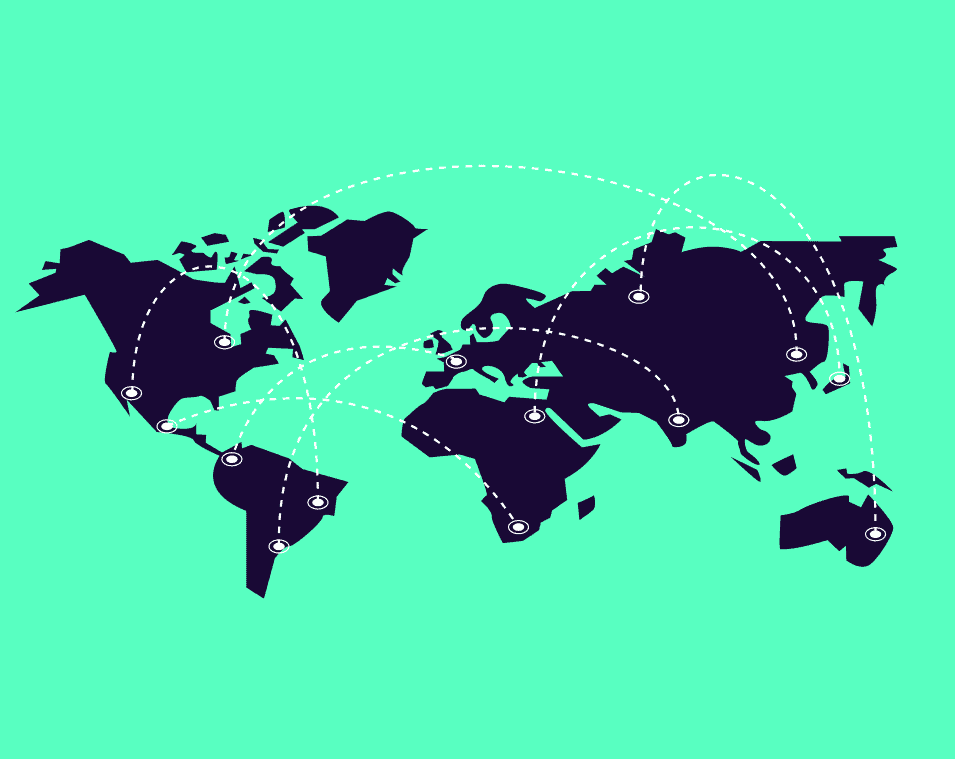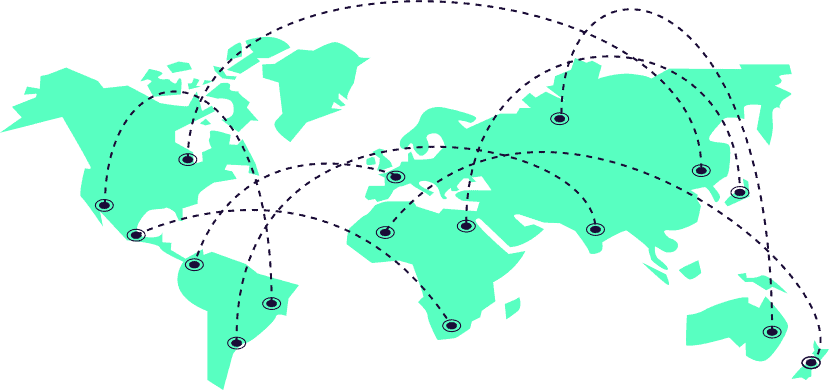
Adrian and Rachel Mapp left New Zealand for the UK in 2012 for a reverse OE. After several years working for international companies, they were offered an opportunity to start up European and UK fulfilment warehouses of Kiwi company Supply Chain Solutions. The only problem was, it was the middle of a pandemic and both Europe and the UK were in lockdown. They talk about why they decided to take the risk and share their top tips for Kiwi companies looking to lessen their supply chain woes.
“We got over to Amsterdam in the thick of the lockdown, trying to find a facility and set everything up was both an interesting and challenging experience. It was the first time in 30 years in the industry I have ever seen logistics break and break quickly. All of a sudden borders were closed. Companies that were sourcing 100% offshore suddenly couldn’t get supply, they had to start sourcing local supply rapidly and were paying three to four times the normal amount. Shipping costs exploded and we saw suppliers imploding as they couldn’t keep up with demand, and then there were the staffing issues as people got Covid, it was crazy.”
On top of all of that the UK was going through Brexit. Adrian says it really was a triple whammy and opening Amsterdam was a huge gamble, but at the same time they both knew it was a unique opportunity to help.
“We both knew that there would be a fear barrier from Kiwis and Aussies about coming back to Europe and the UK or even starting in either country, it was something we could help with. SCS launched globally with three foundation accounts and within two years we helped those businesses to become multi-million-dollar companies. It was just that whole power to take people to the global market and to be able to coach them through the start-up, their marketing, supply chain, that drove the global expansion from New Zealand,”
Helping businesses to grow globally in the thick of the pandemic has certainly given Adrian and Rachel some interesting insights. And Rachel says there’s a lot of opportunity for Kiwi businesses thinking about taking the plunge.
“From our point of view, bar inflationary pressures, there has never been a better time for New Zealand exporters to enter the European market. There are a lot of people who are confused about Brexit and there are a lot of English companies that are not trading in Europe and vice versa. That’s where we are finding a lot of opportunities for Kiwi businesses that are getting into those markets, where other people are hesitant to do so.”
“A lot of Kiwi businesses predominantly lean on the UK, which has traditionally always been the footstep in, but our role is to show these businesses that the UK isn’t the be all and end all. You’ve also got the opportunity to get into Europe, with all of its 390 million consumers. Why wouldn’t you at least investigate that opportunity?”
Here is Rachel and Adrian’s top advice for Kiwi companies looking to take their business global.
2. Cheapest isn’t always best
Pre-Covid, supply chain was about reducing your costs as much as possible and increasing your profits and margins. But in today’s environment, this can be a risk. It can be worth it to pay a little more to source local products. More importantly, it’s about building relationships with those local manufacturers, so that if things flip again and supply chains break or shipping costs go through the roof, you can upscale quickly using local suppliers.
3. Rethink everything you know about globalisation
Obviously, it depends on the industry you’re in, for example, in finished manufactured products, rather than commodities, you need to be careful to manage cash flow, but find a balance between what you should stockpile from global sources and what you can get your hands on locally.4. Do your homework first.
Talking to people and getting your network going in the UK or EU is super important. It’s so different to home. Some people are really surprised when they get here and things take twice as long. It took us six months to open a business bank account in the Netherlands. It takes three months to get a VAT number. Make sure you’re up to date with compliance and understand the changes that have happened over here since Covid and post-Brexit. Find experts or go to companies like ours that can point you to the experts who can give you the confidence to launch.5. Always have a good risk plan in place.
Always err on the side of caution, but don’t let that stop you from investing. That’s where your network comes in handy, as you can use them to get that sanity check.
How the pandemic has helped businesses rethink globalisation










